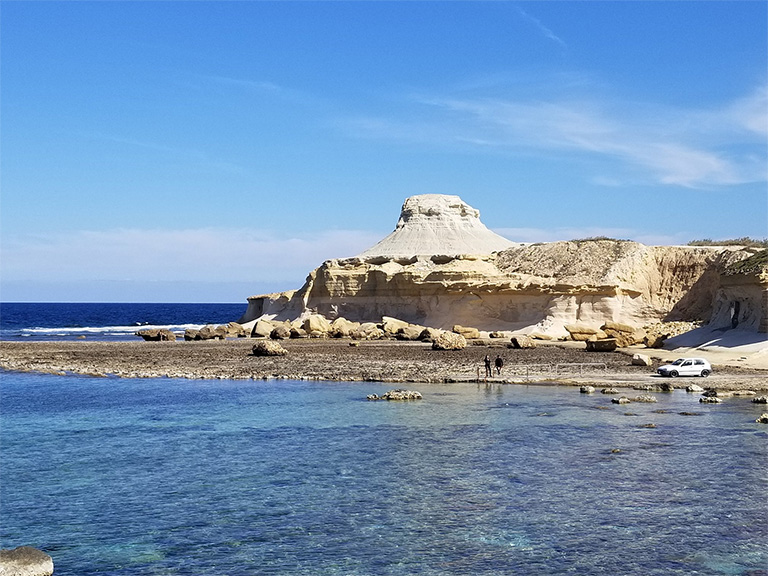
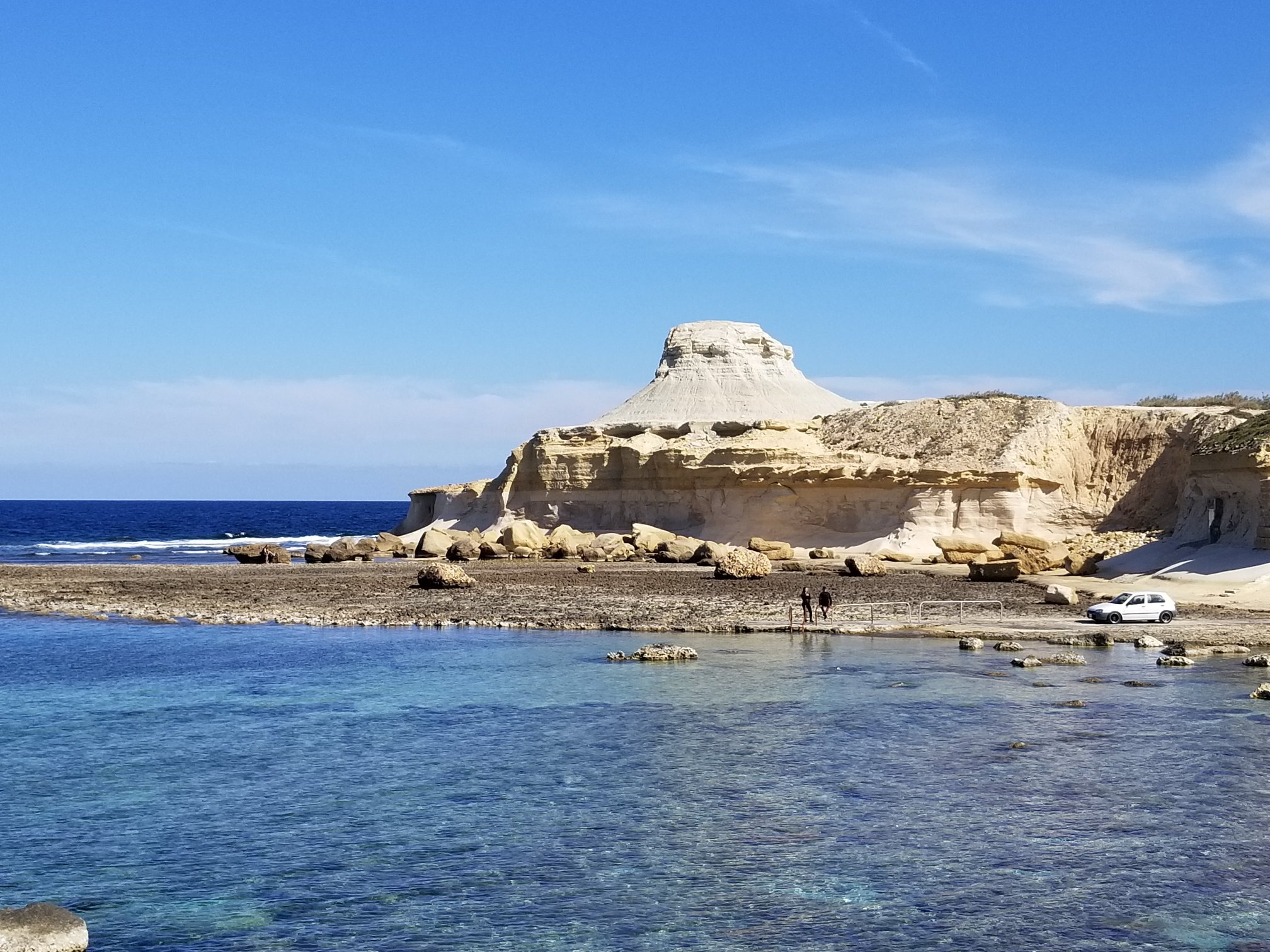
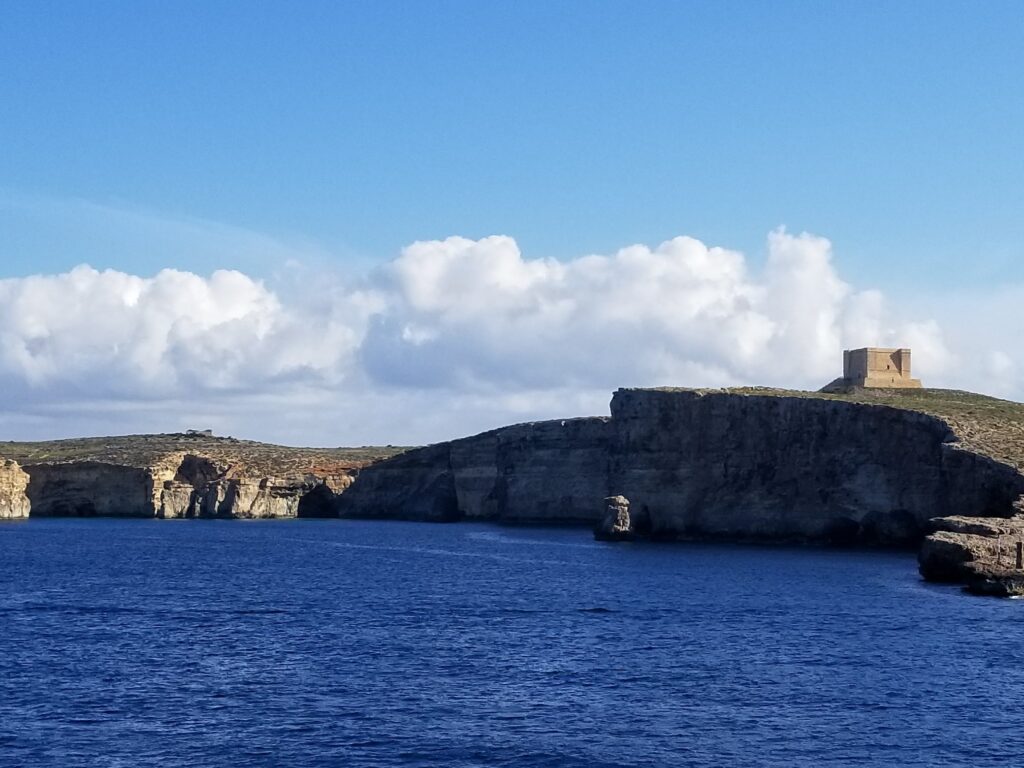
Besides its main island Malta has another two smaller inhibited islands, Gozo and Comino which you can see on this photograph.
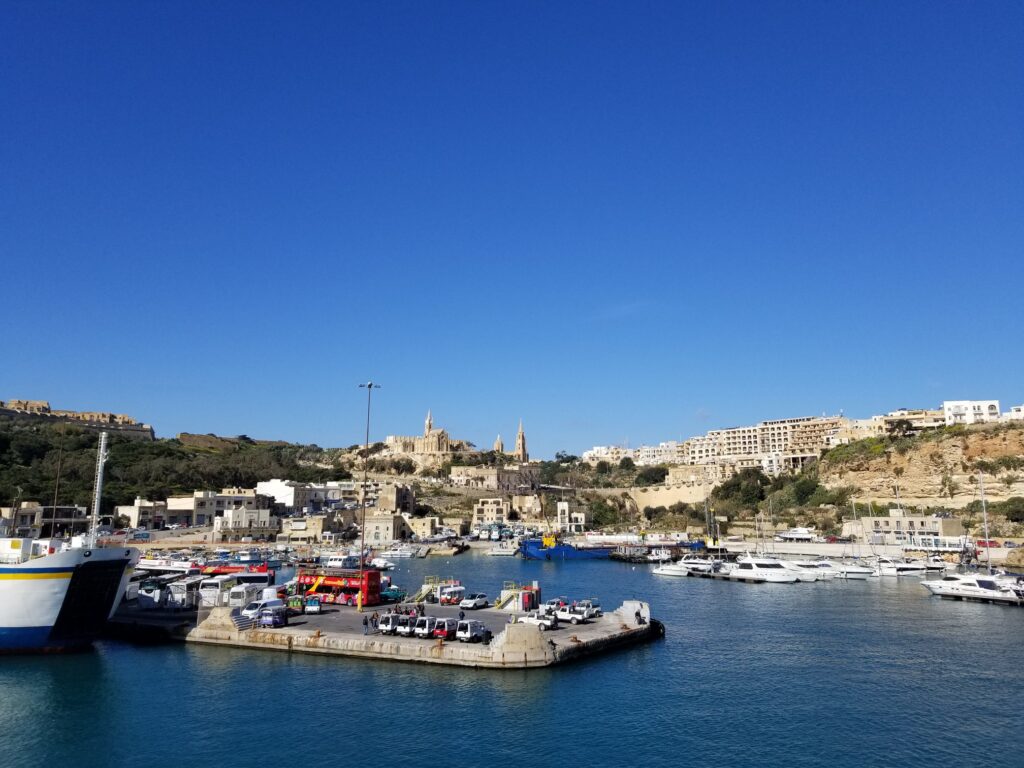
The ferry takes you to Mdjar located on Gozo island.
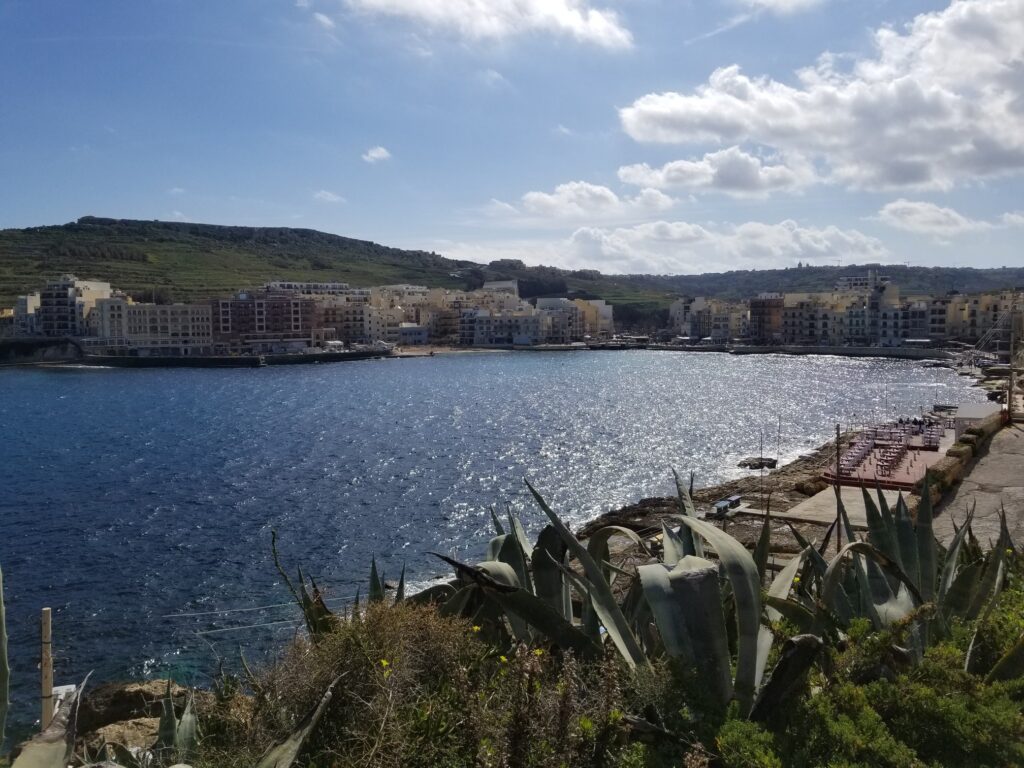
We start the hike from the other side of the island, from Marsalforn. At the bottom of the photo is the Agave plant.
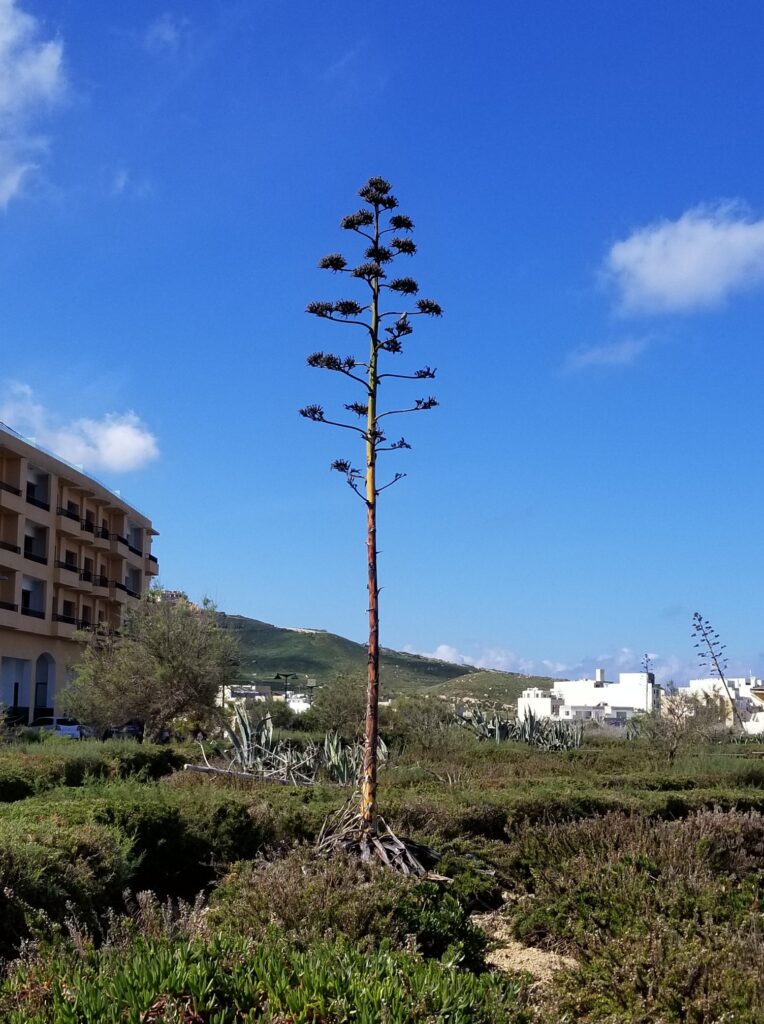
During flowering, a long stalk grows from the Agave. Agaves are not originally from the Mediterranean, but were brought from the American continent.
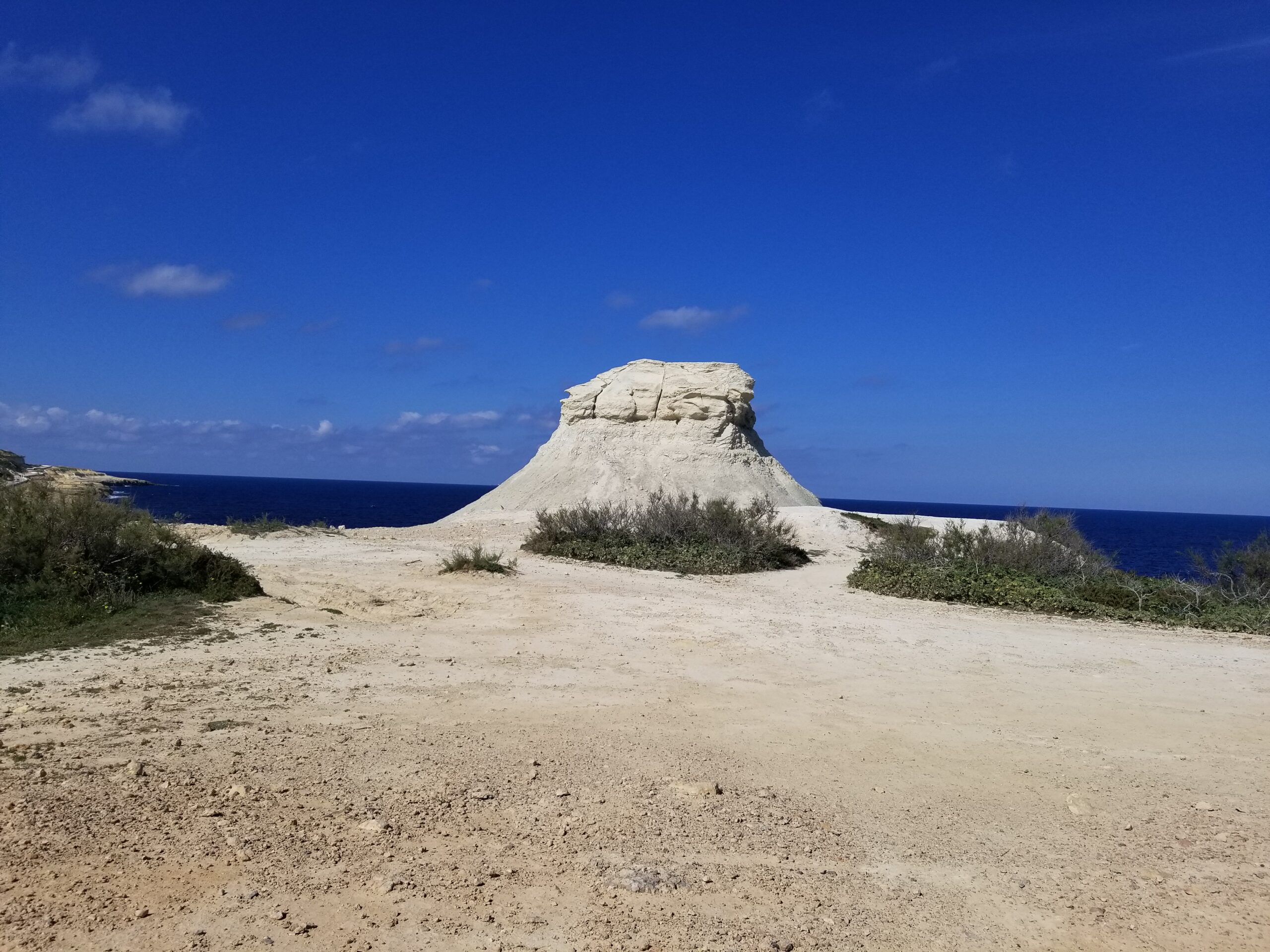
The most recognizable natural phenomenon of the island of Goza is this hill, called “Bald Head”. In Malta, many hills have flat peaks. The hill got this shape under the influence of sea erosion, which has lasted for the last 5 million years.
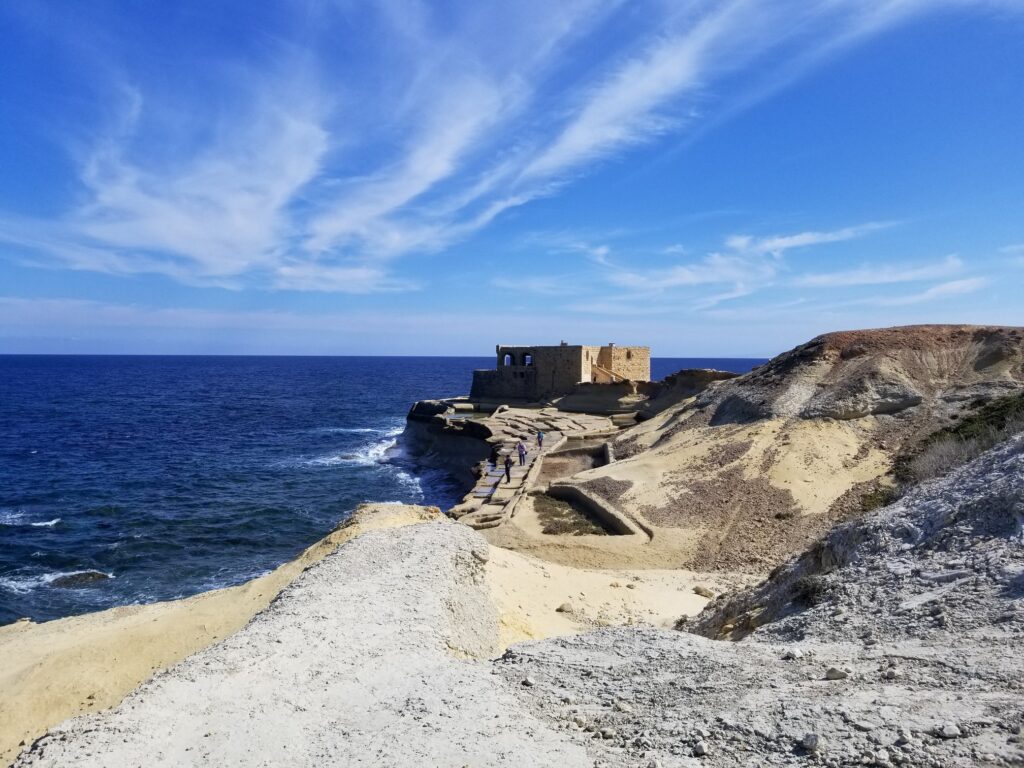
Behind the hill you can see the artillery bunker built by the Knights of Malta in the 18th century.
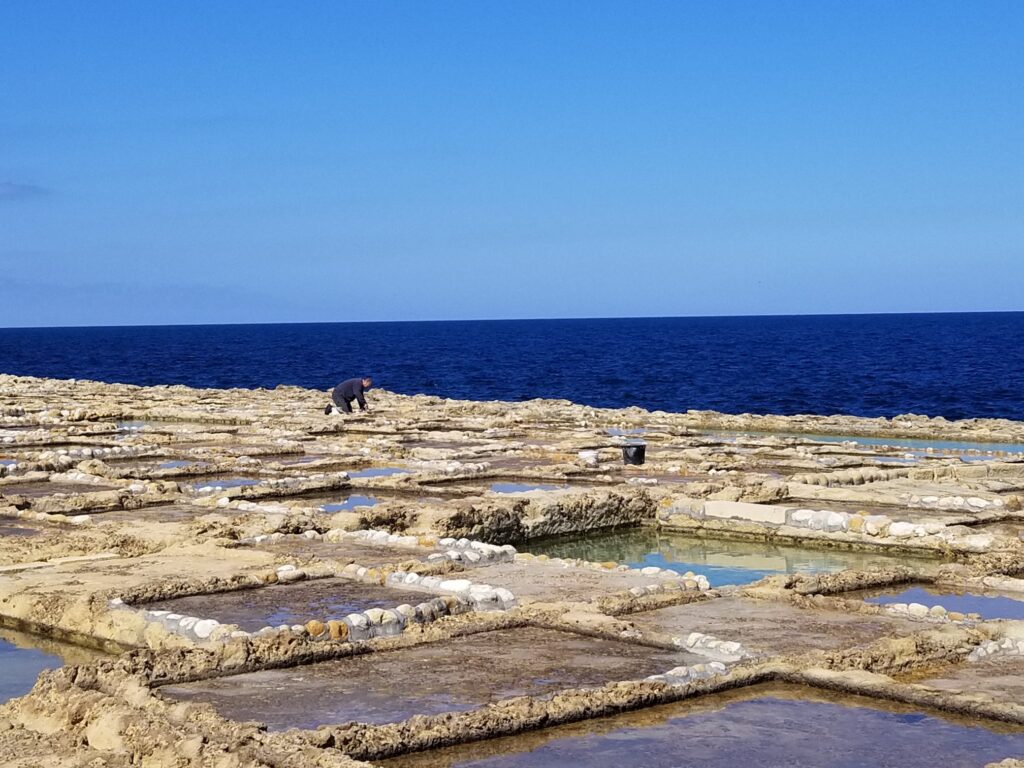
By the sea shore, called Xwieni, there are pools for salt collecting. Even to this day you can see workers working at these pools and collecting salt in traditional way. It was done this way since ancient Romans. Salt is received by filling these pools with sea water.
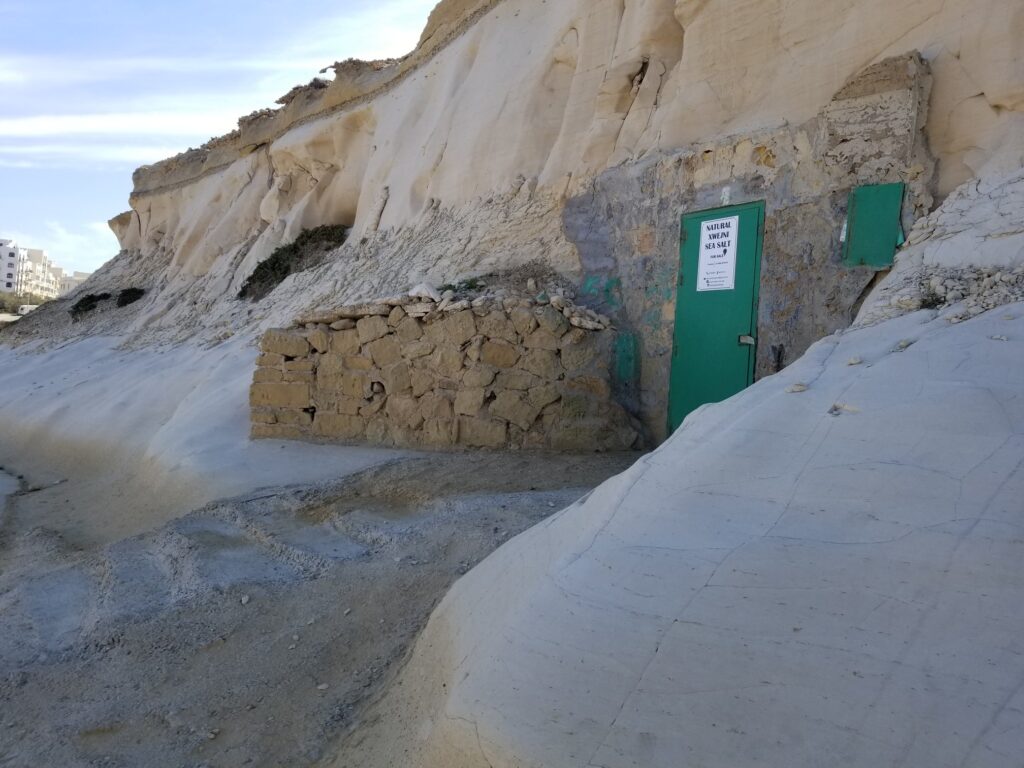
As water evaporates, salt is left in these pools, which is then collected and warehouses in basements excavated in the rocks.
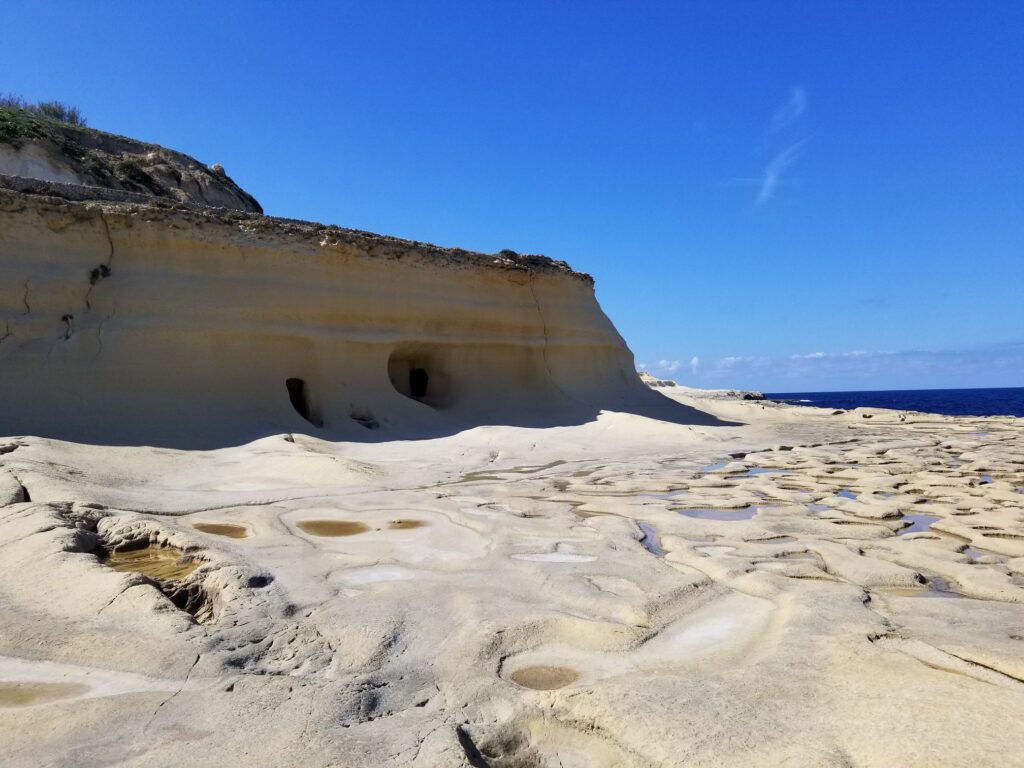
Later we arrive to the shore which is characteristic of these smooth rocks. The rocks became so smooth under the influence of sea erosion, primarily waves and also the wind.
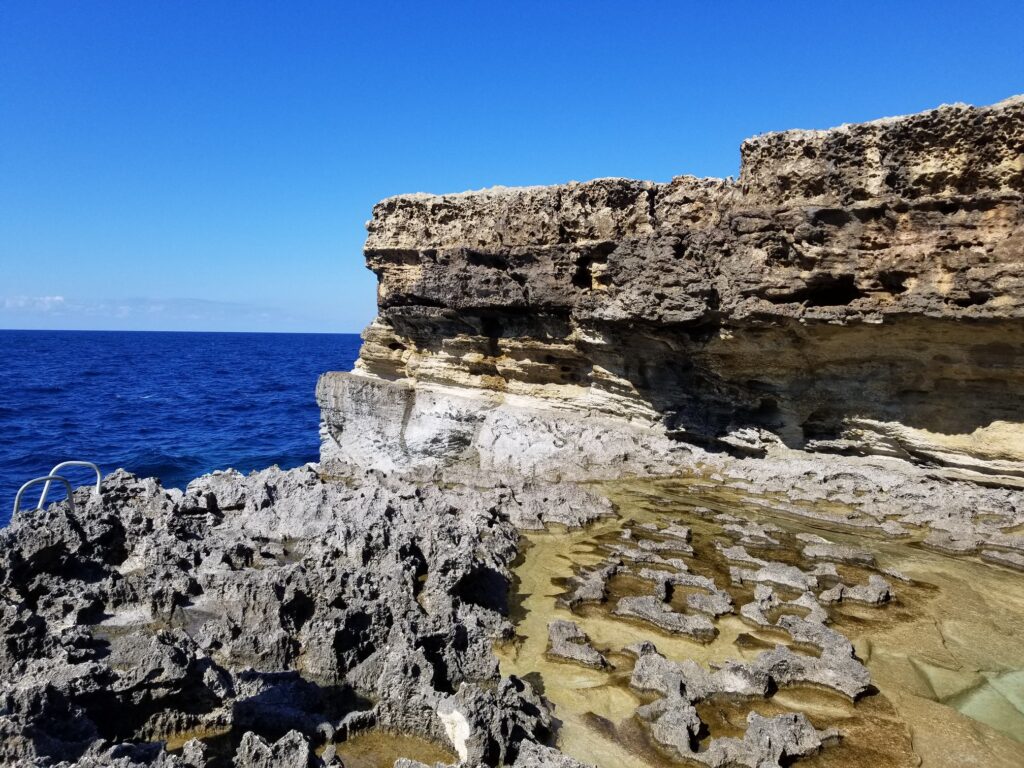
The coast is steep and access to water is difficult, the rocks are no longer smooth as before.
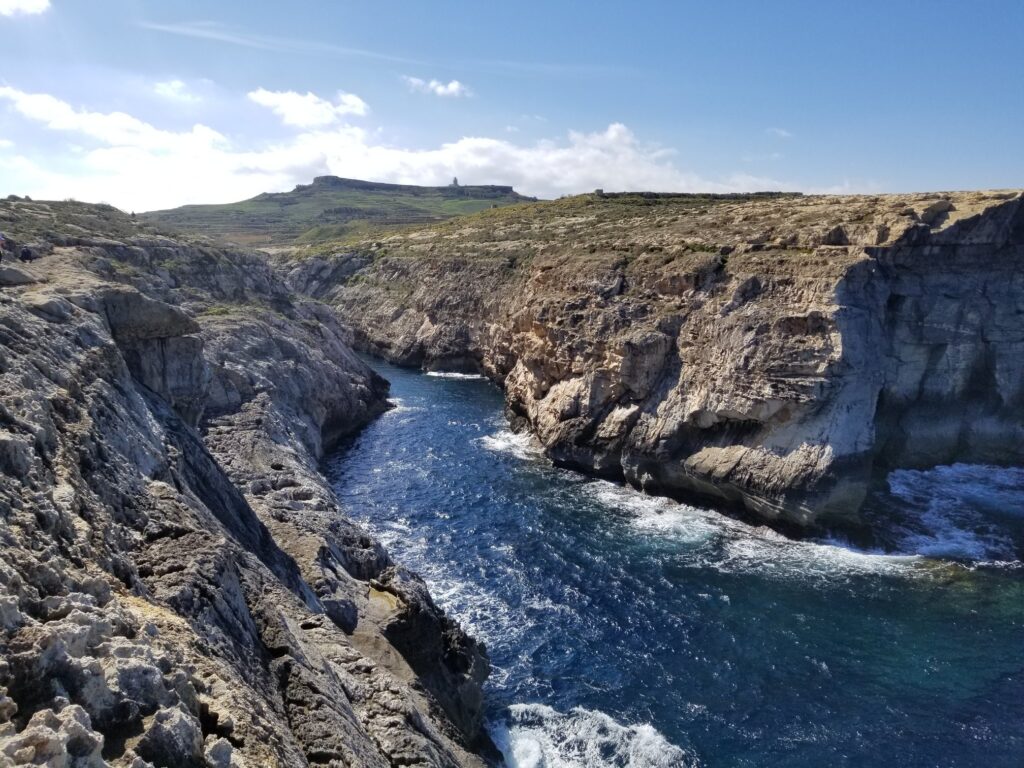
And at one point we arrive to this little bay….
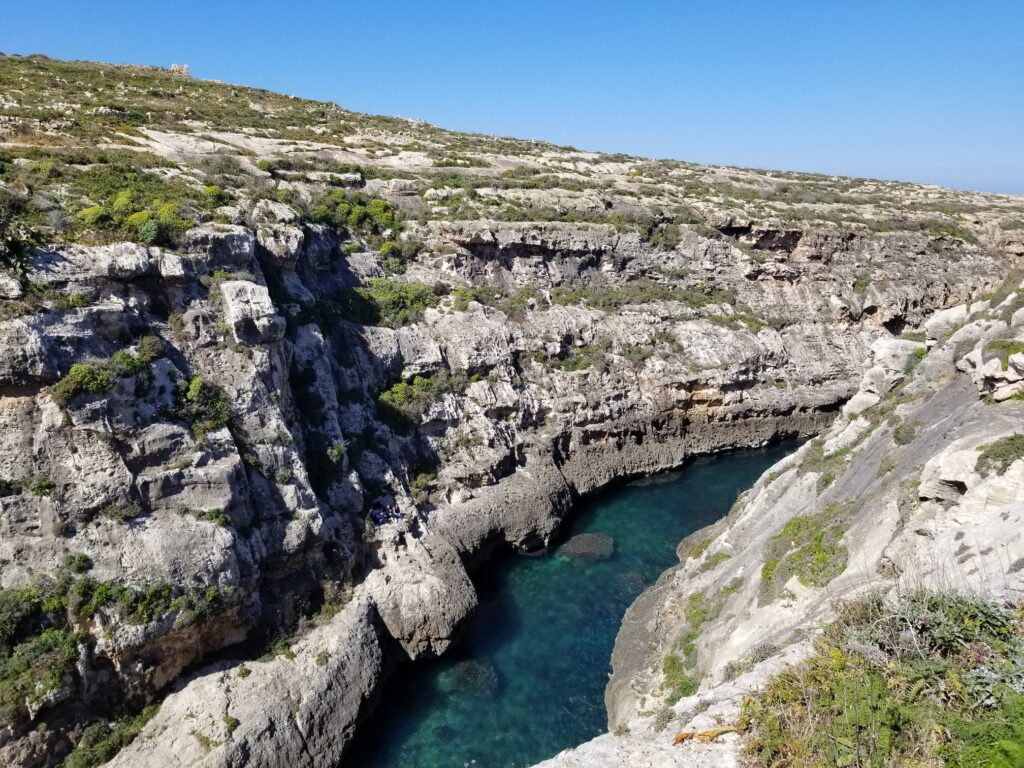
.. which cut deep into the mainland like a wedge.
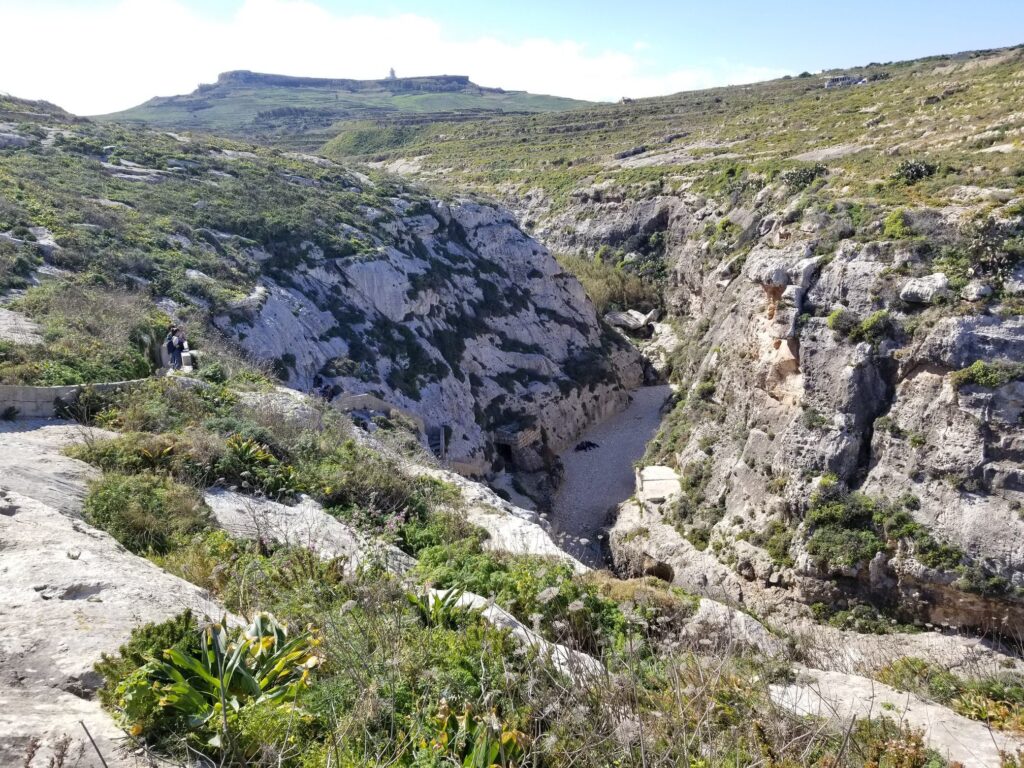
Due to the low tide, part of the bay was left without water. In fact, the bay represents the end of the canyon, which was created under the influence of river erosion. The water in the canyon has dried up.
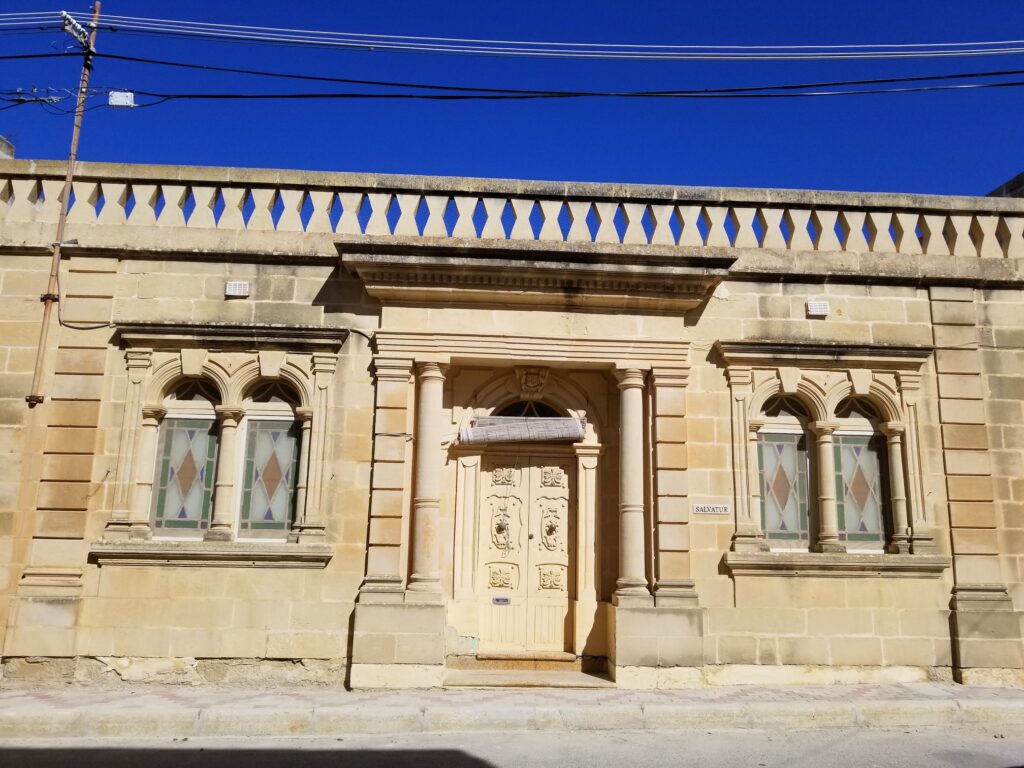
The trail leaves the coast behind and passes through the village Gdjasri. All villages in Malta are built in neo-baroque style. This architectural style was not only reserved to churches, palaces and houses of the aristocracy, but was widely used for rural households as well.
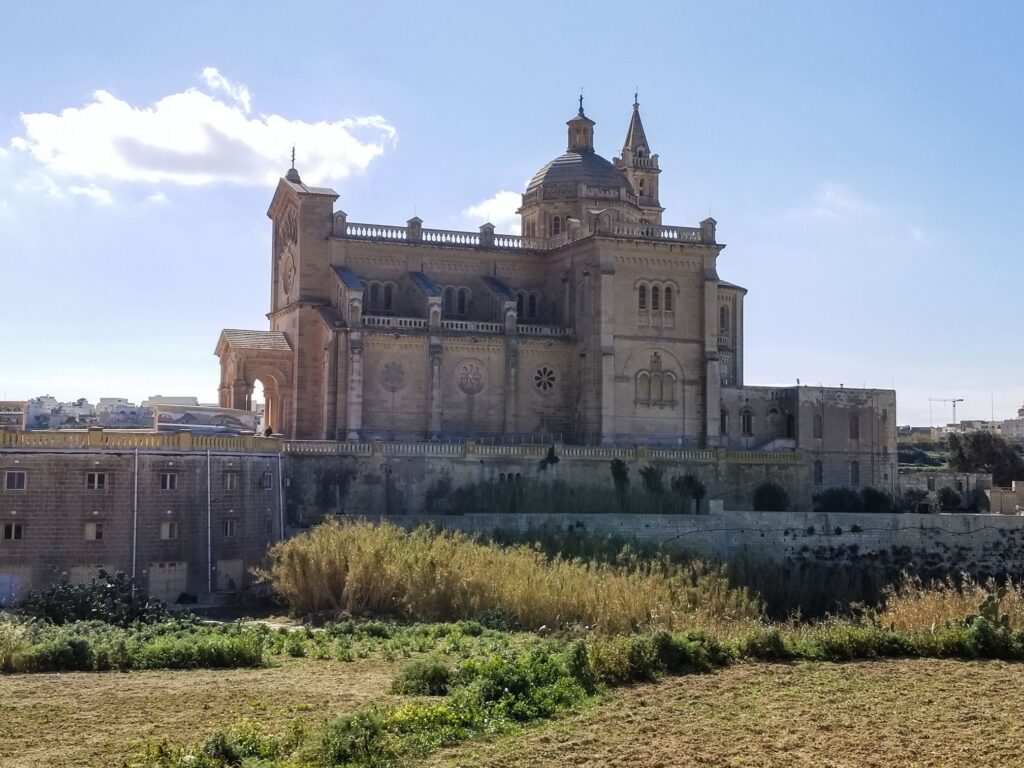
Ta Pinu Church was built in 1931, on the site where used to be a chapel. In 1883 a woman has seen a miracle, she heard Hail Mary speak. From that moment on, this place became a place of pilgrimage for believers. During the construction of the church, the academic style of architecture was used, characteristic of the end of the 19th century, in which several different styles of Romanesque, Gothic, Renaissance and Baroque are united.
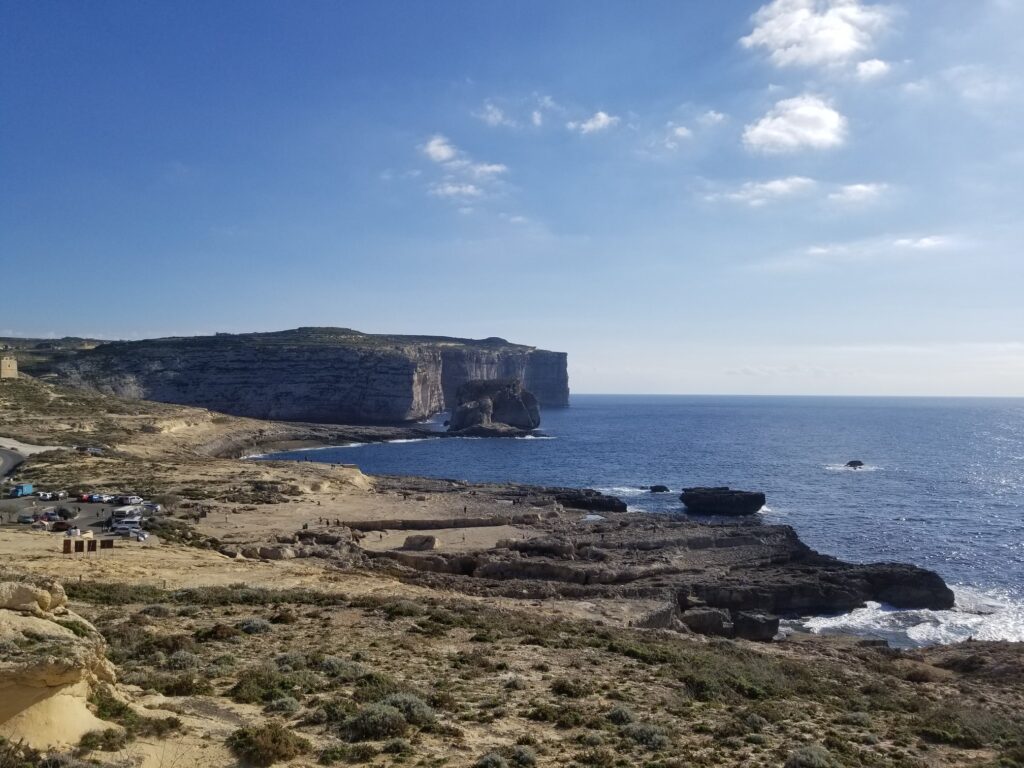
Dvejre is the most beautiful part of Gozo.
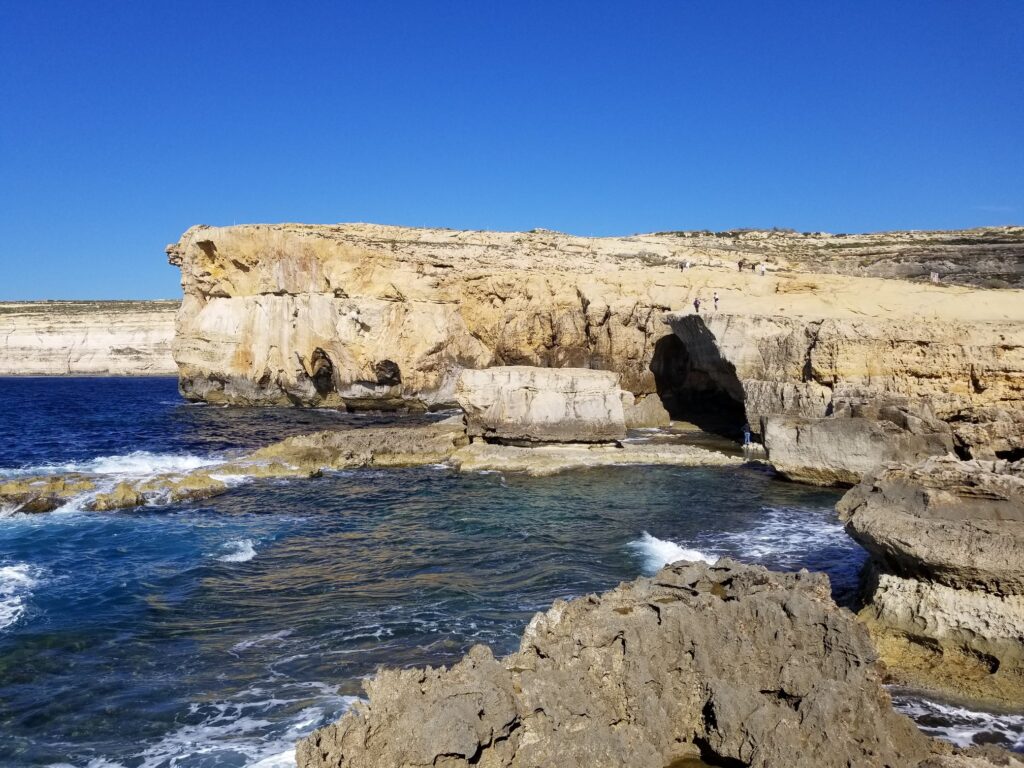
This is where the famous Azure Window once stood.
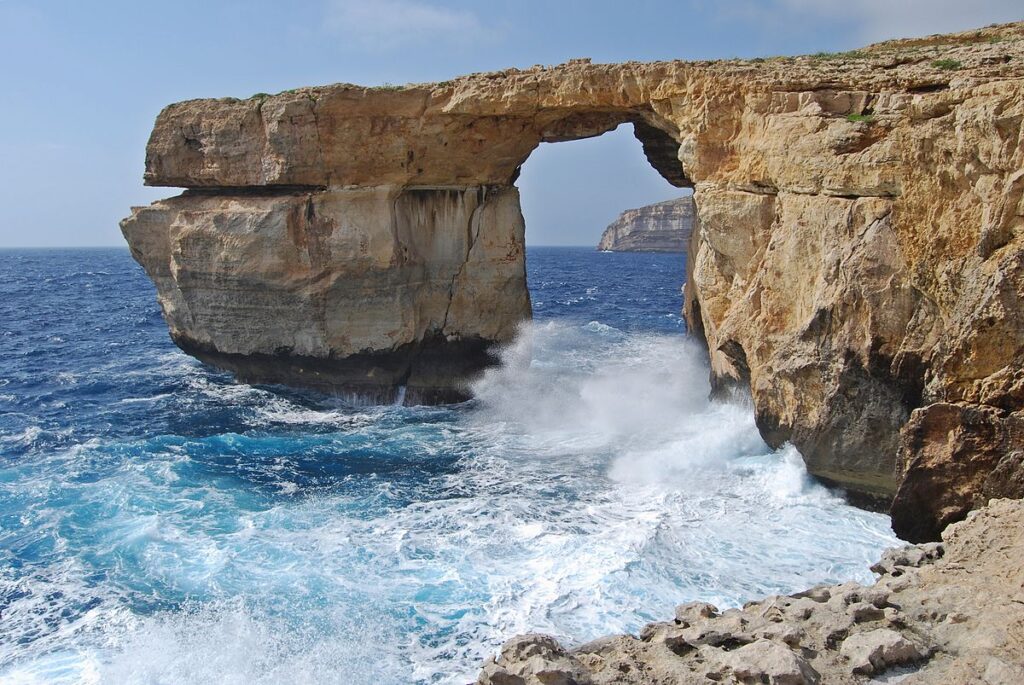
It does not exist anymore as it has collapsed in 2017.
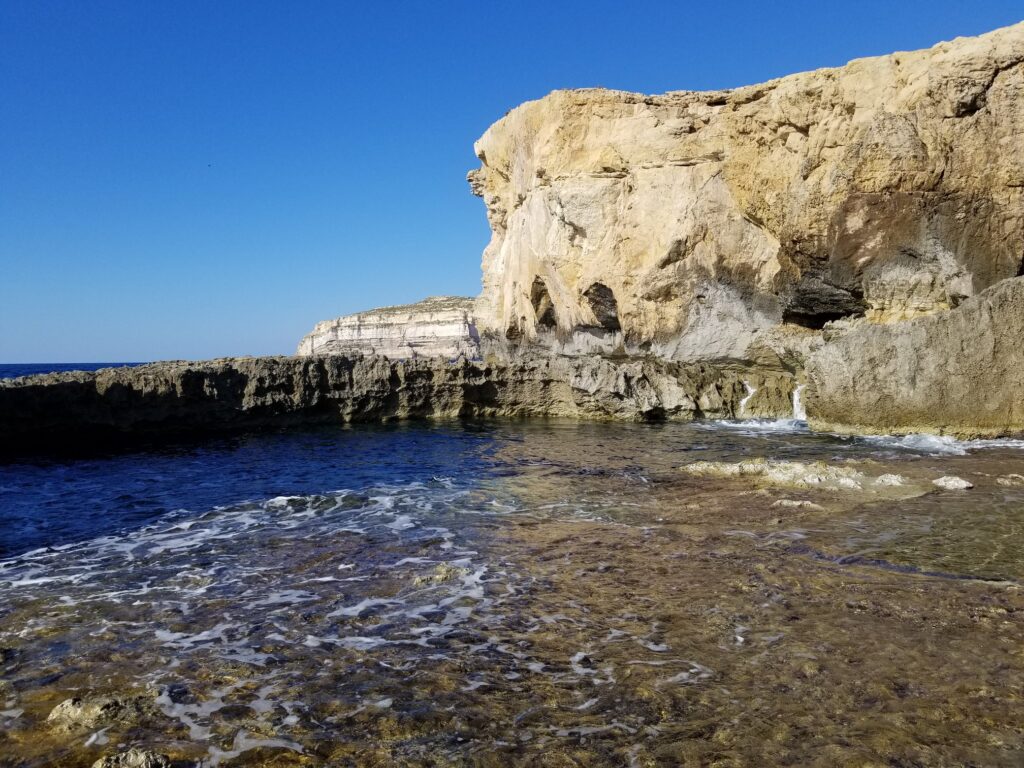
Next to the Azure Window is the Blue Hole, another natural phenomenon on Goza. The blue hole is a small depression in the ground 15 meters deep. It is very popular among divers, because it is separated from the open sea by a rocky barrier.
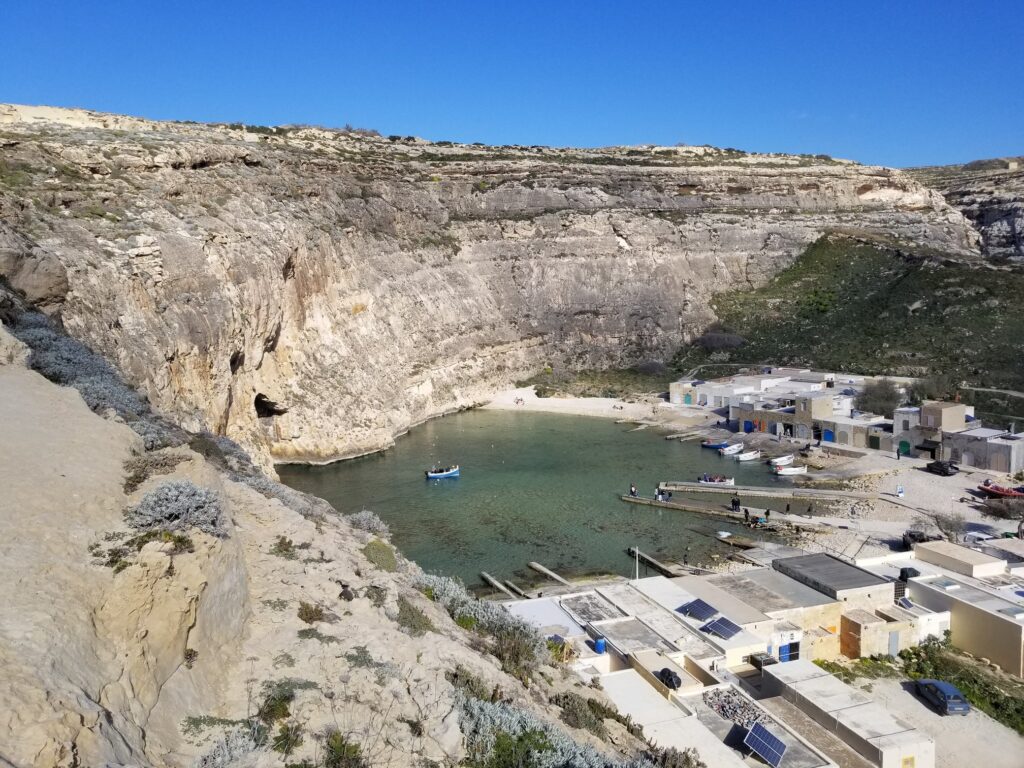
Not far, there is Inner Sea, some sort of lake of sea water separated from the sea by high rocks. The lake is connected with the sea by a tiny tunnel large enough for tourist boats to pass through.
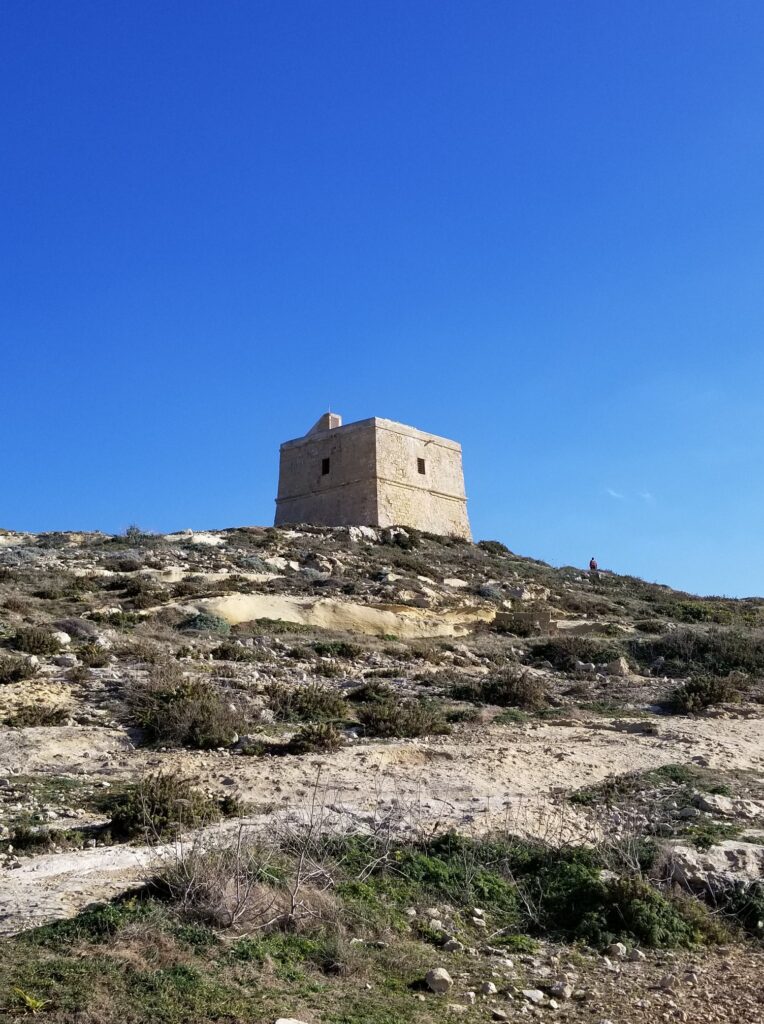
Above Dvejre there is a tower which carries the same name.
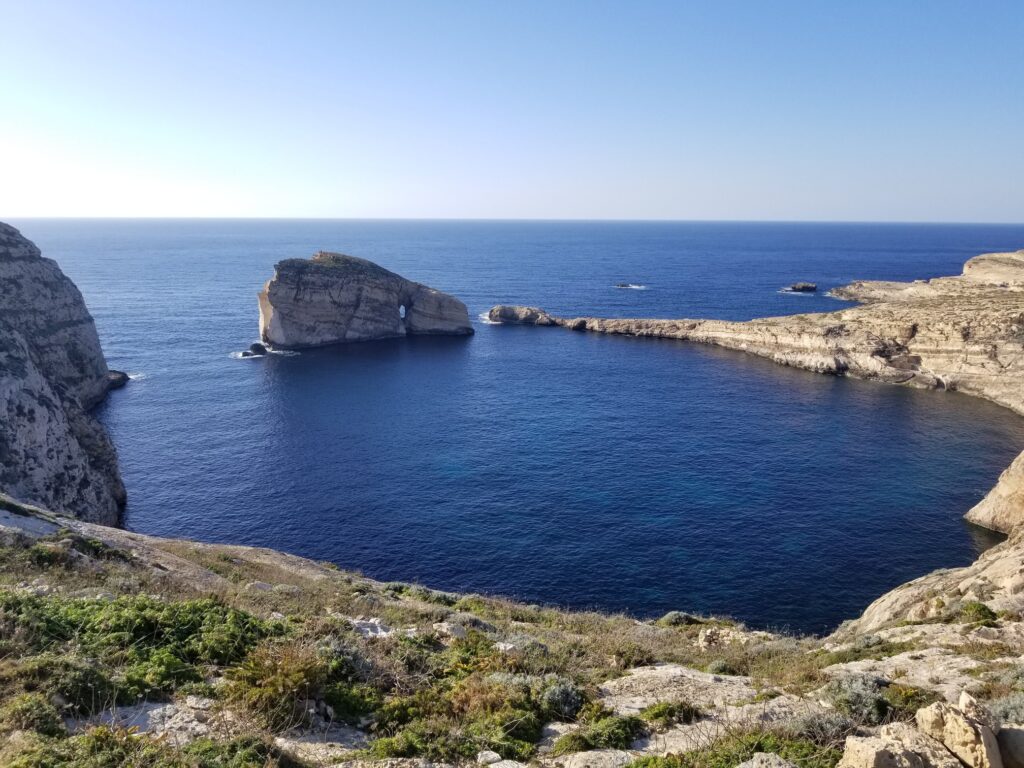
Behind Dvejre, a small bay with Fungus rocks.
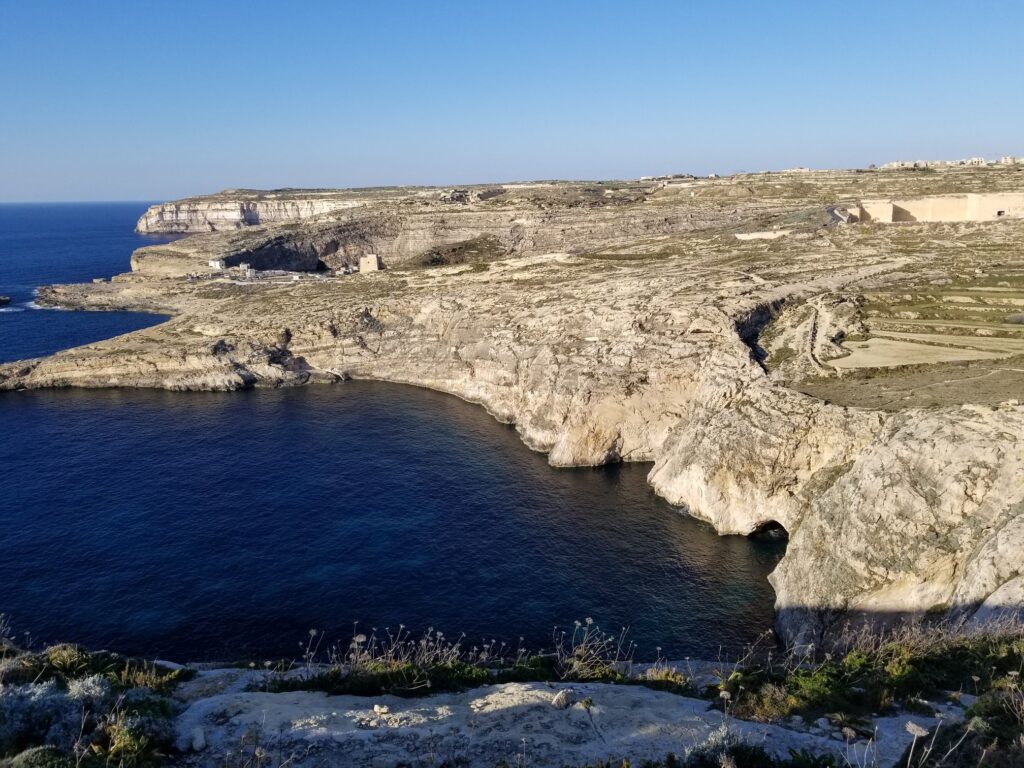
Sea caves in the bay.
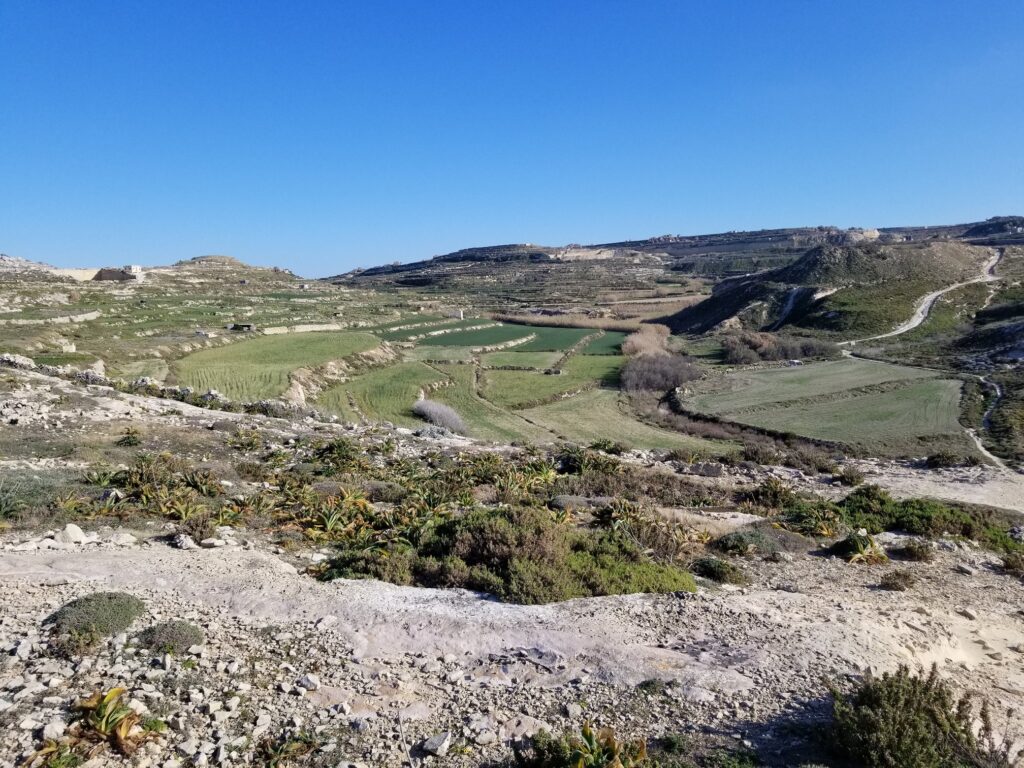
Behind the bay is a green valley with terraced fields.
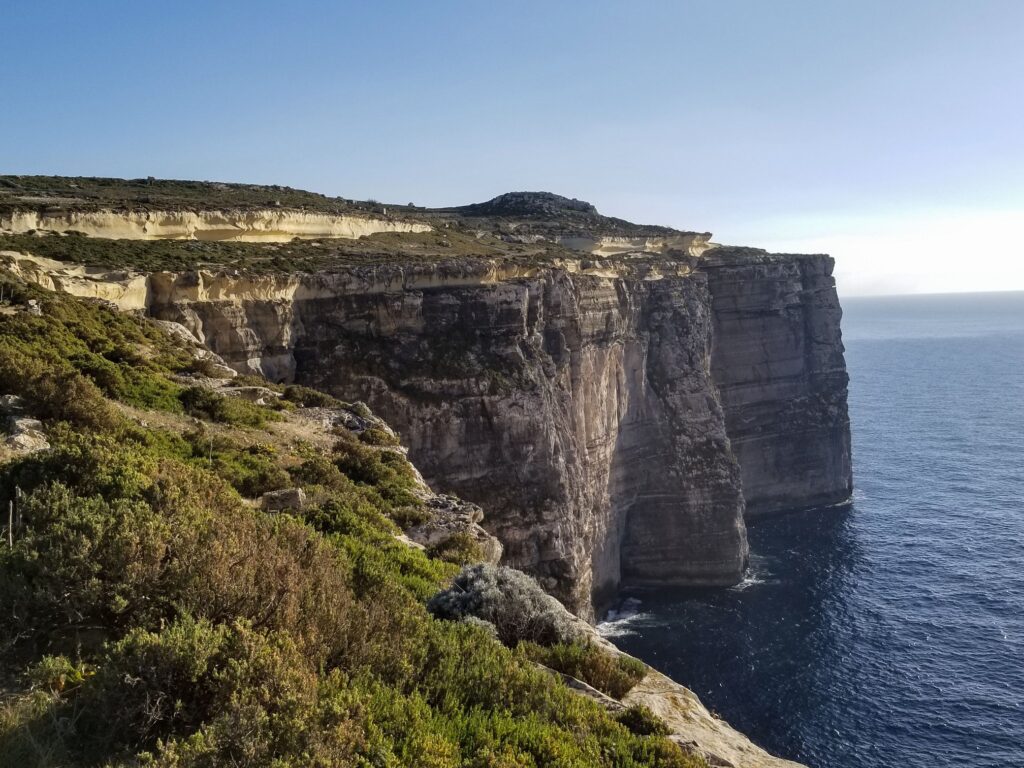
Coast is steep at this bay.
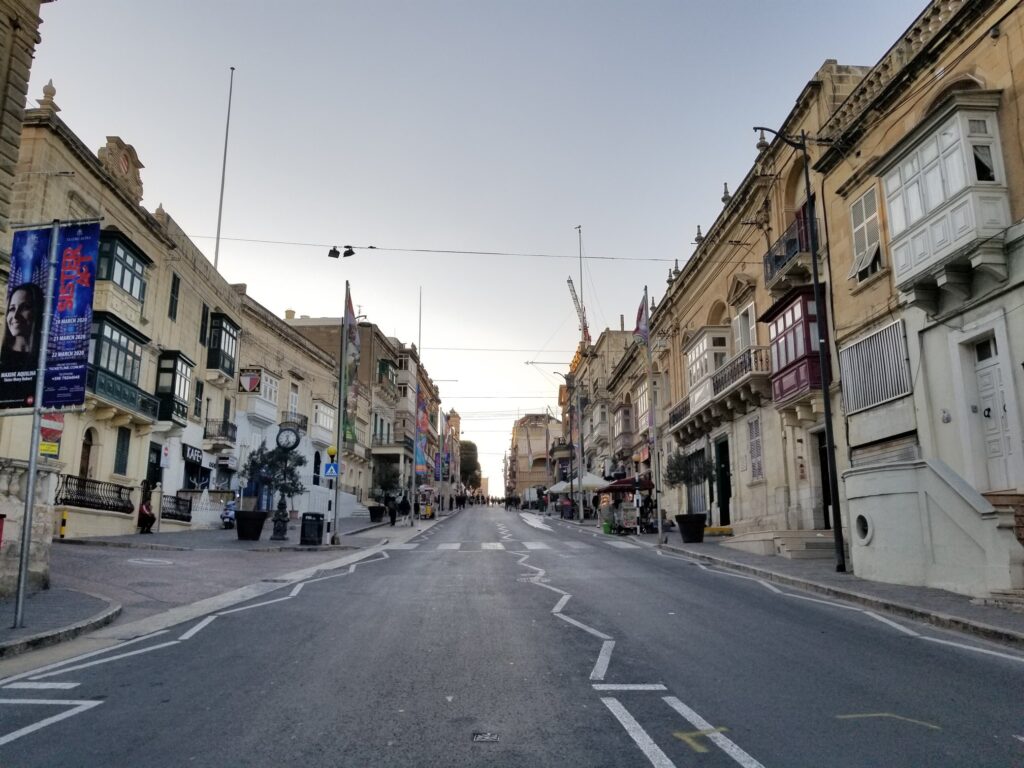
Walking tour of Gozo island may end at the town Victoria, one of the most beautiful towns in the whole country.
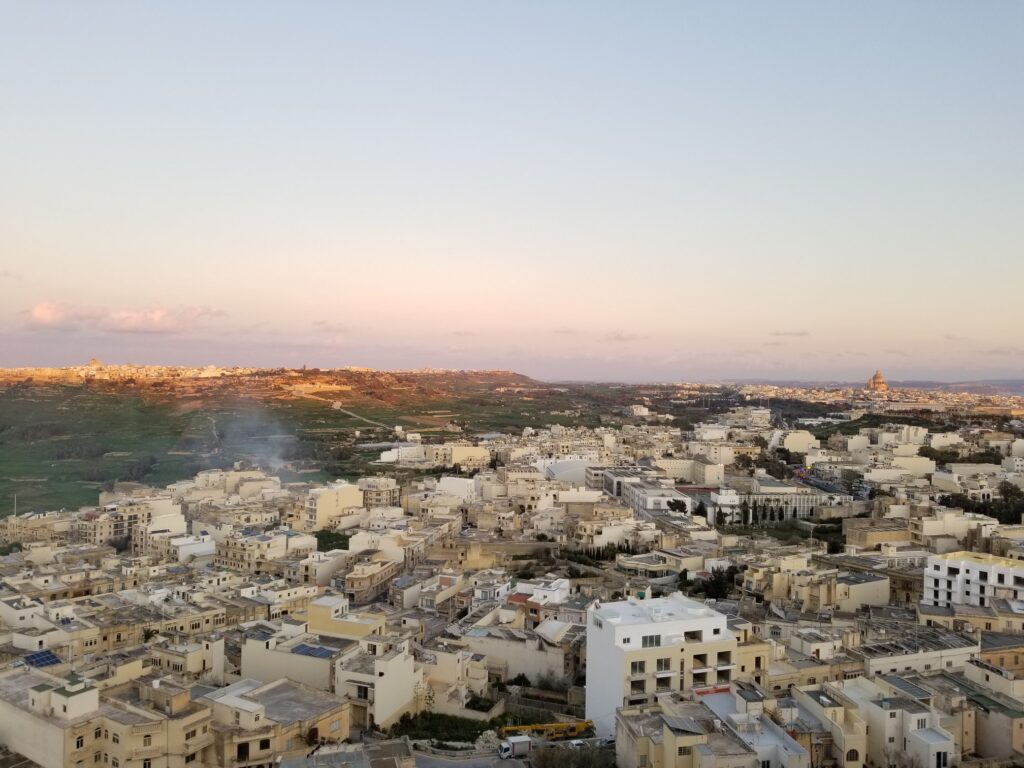
Town was once named Rabat, but in the 19th century, during the British colonial rule over the island, it was renamed Victoria, after the British Queen.
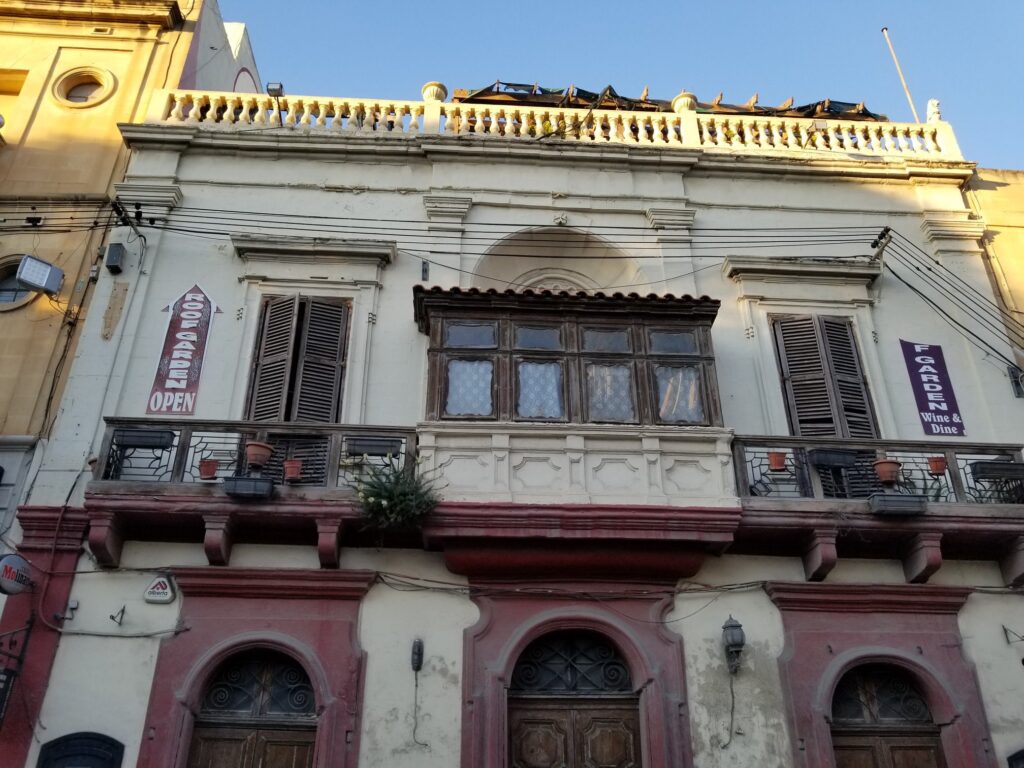
The city experienced terrible earthquakes in 1693, only to be completely rebuilt in the 18th century, gaining its current Baroque appearance.
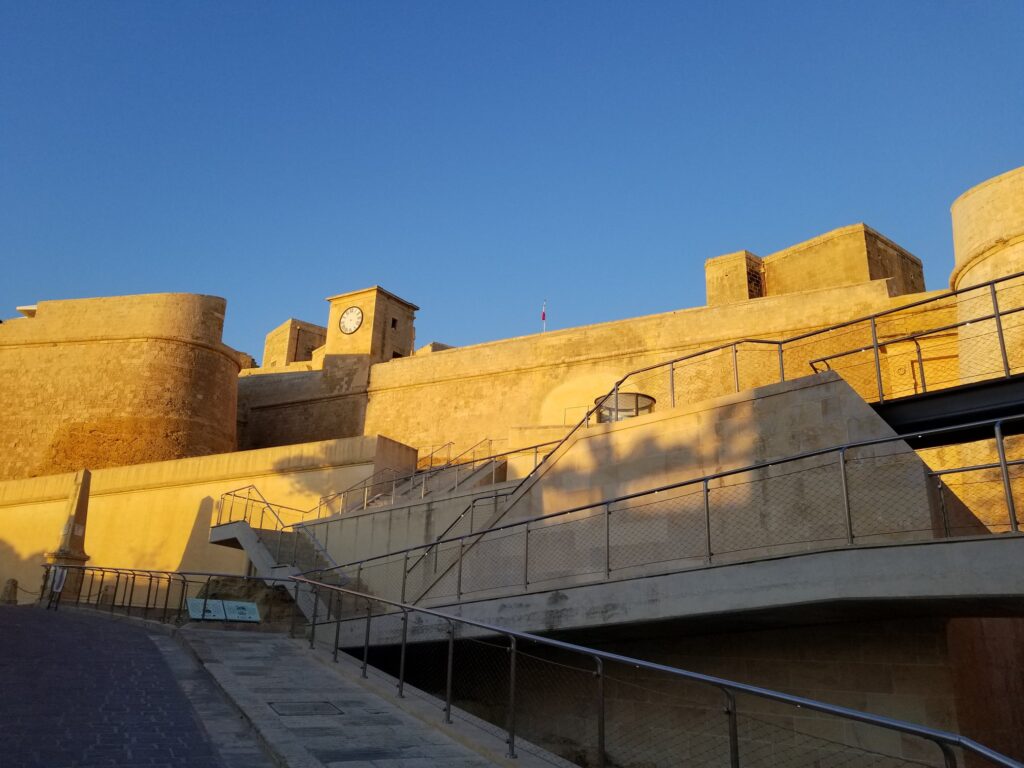
The central part of the city is the citadel, whose walls date back to the 16th century.
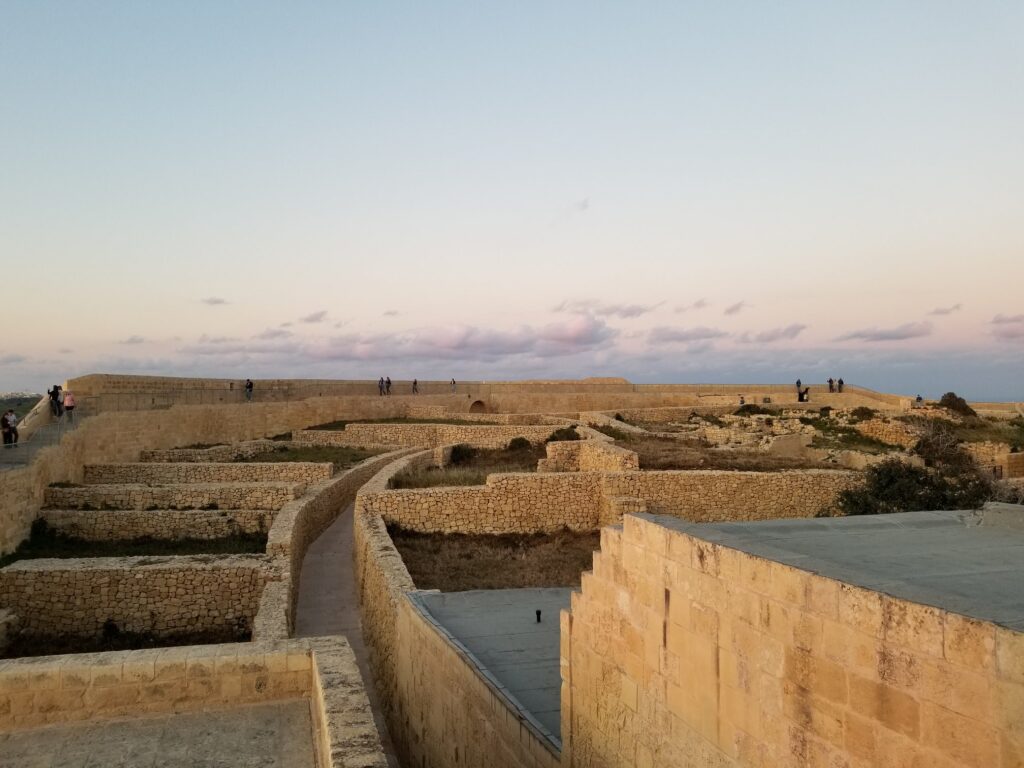
The city was founded by Arabs from Tunisia in the IX century who it the name Rabat, which in Arabic means “fortress”. It is interesting that the capital of Morocco is also called Rabat.
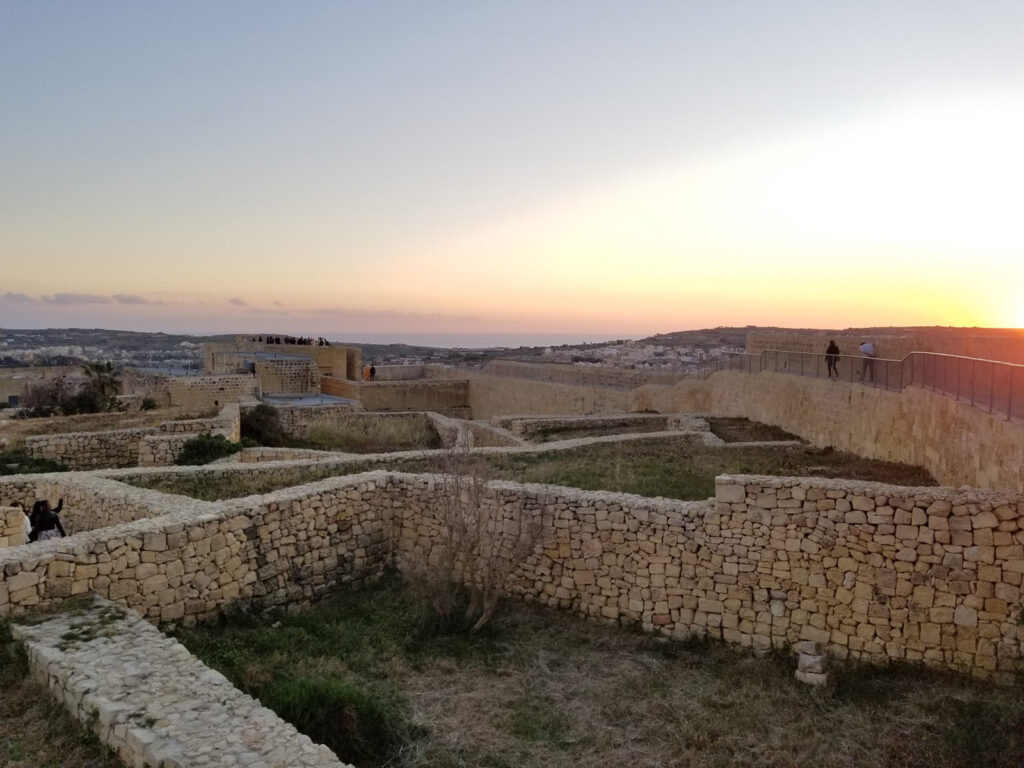
During the Middle ages, in one part of the citadel there was a Jewish quarter, the only place where Jews were allowed to live and work. Malta used to be intersection of different cultures and religions, Christian, Islamic and Jewish.
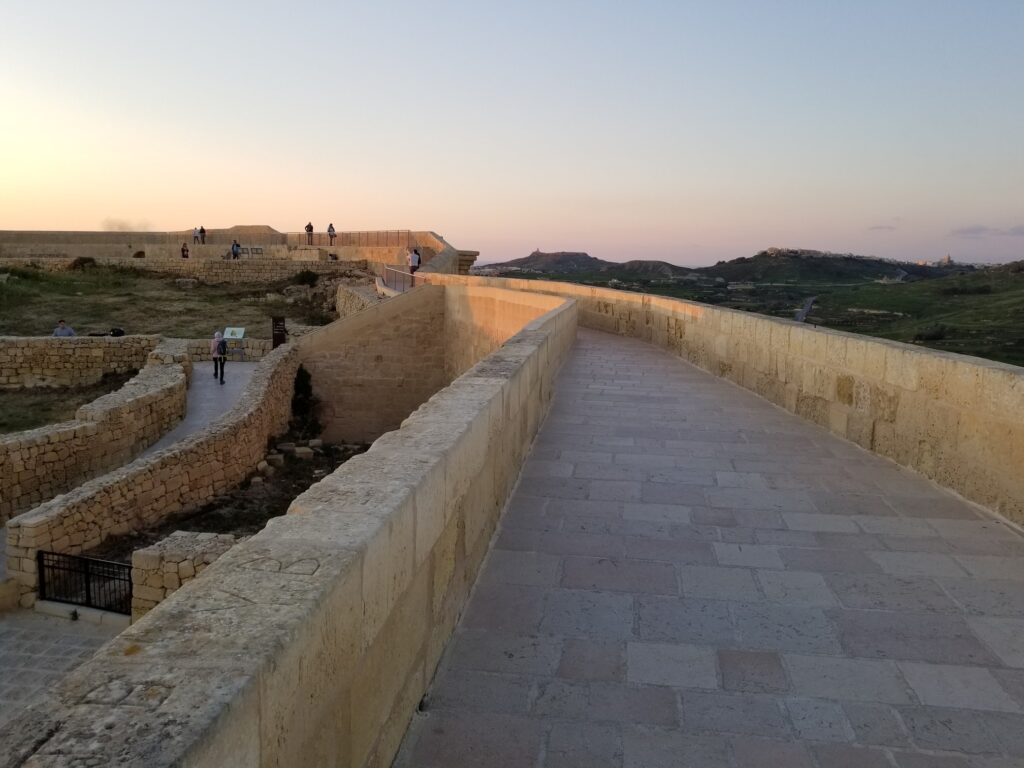
During 16th century, in 1551 to be precise, Turks landed on Gozo and besieged the citadel. They managed to conquer it. On that occasion, 6000 island inhabitants were captured and taken into slavery.
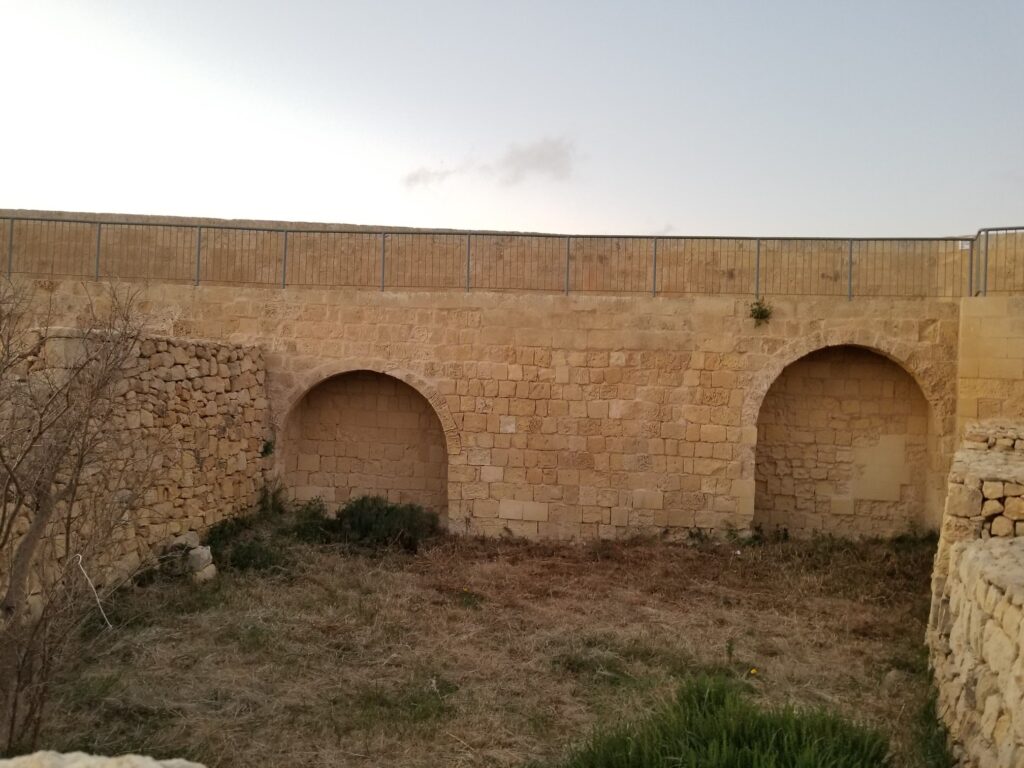
Many Goza residents managed to escape slavery by escaping through a secret gate on the north wall.
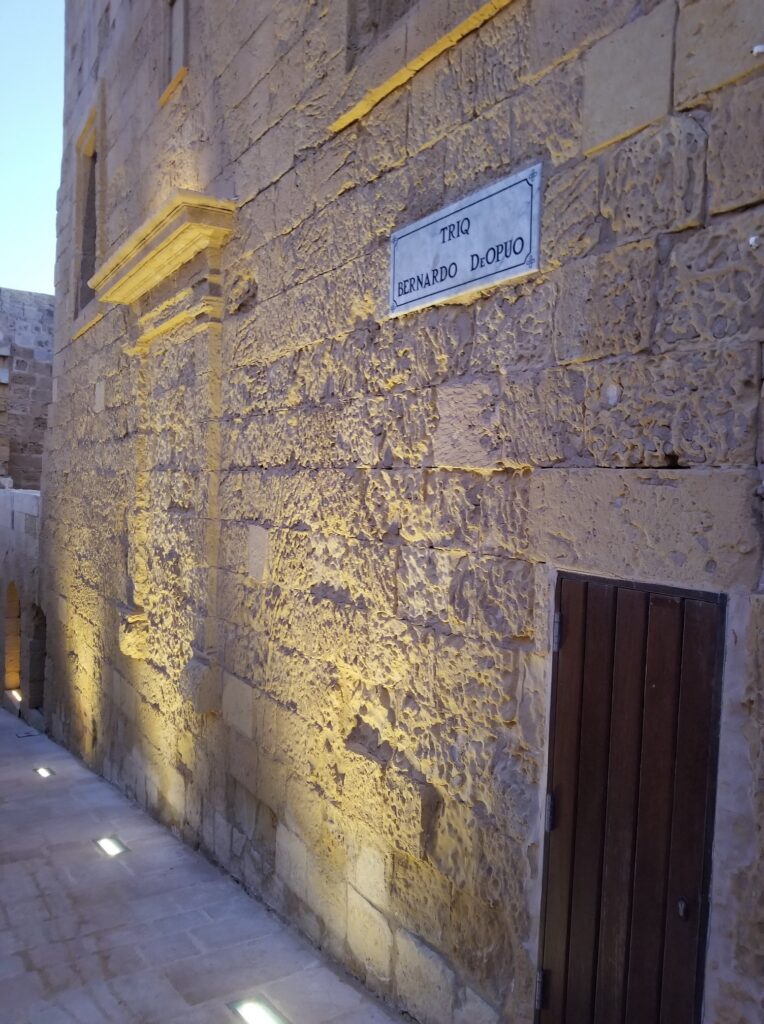
But many others weren’t that lucky. One citadel street is named after a soldier Bernard de Oup who has murdered his own family as he did not want them to be taken into slavery.
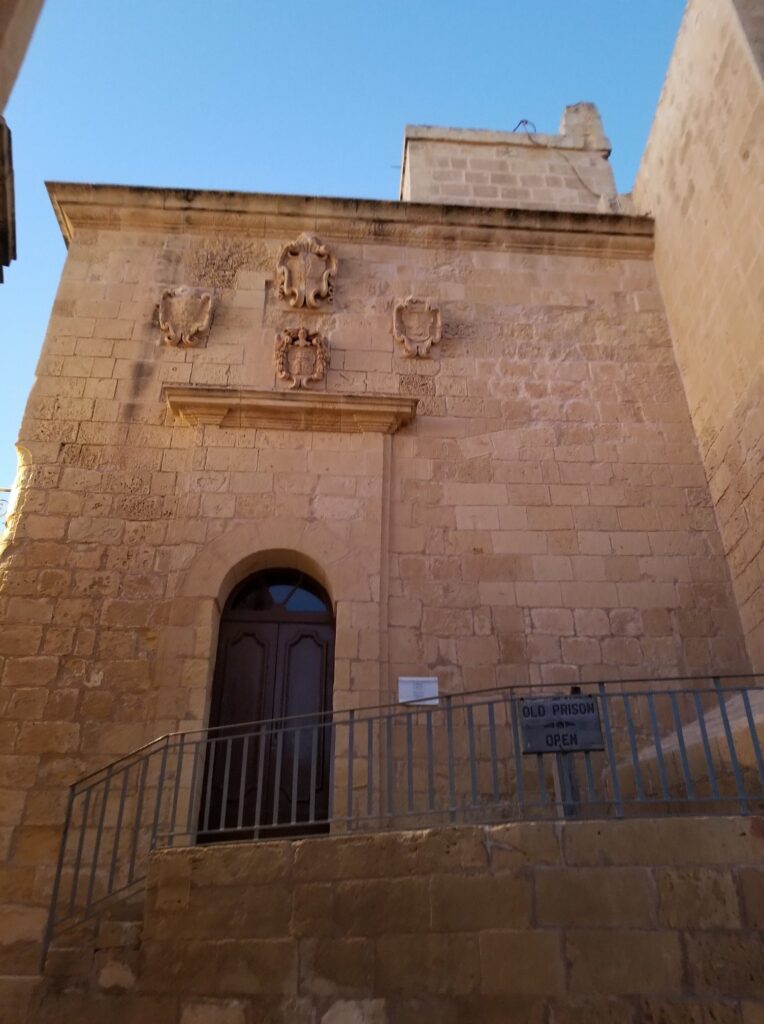
Within the citadel there is a building, Old prison.
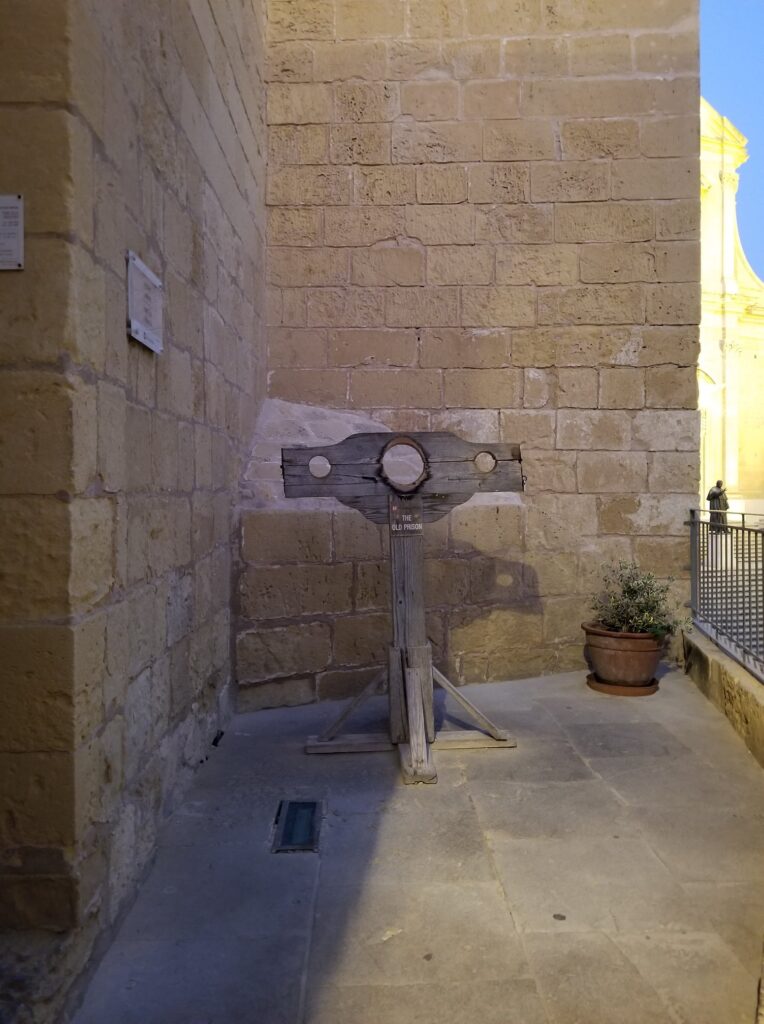
In front of the Old prison, wooden shackles for prisoners are still kept.
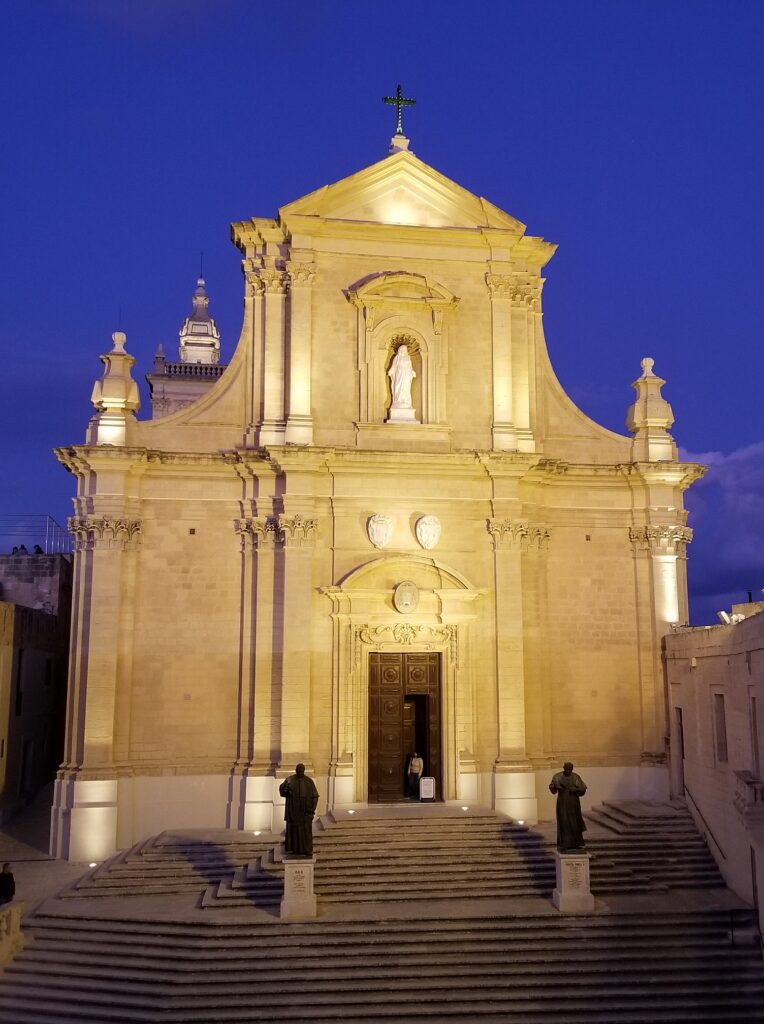
The most significant building in the citadel is the Cathedral of the Assumption of the Virgin from the XVIII century.
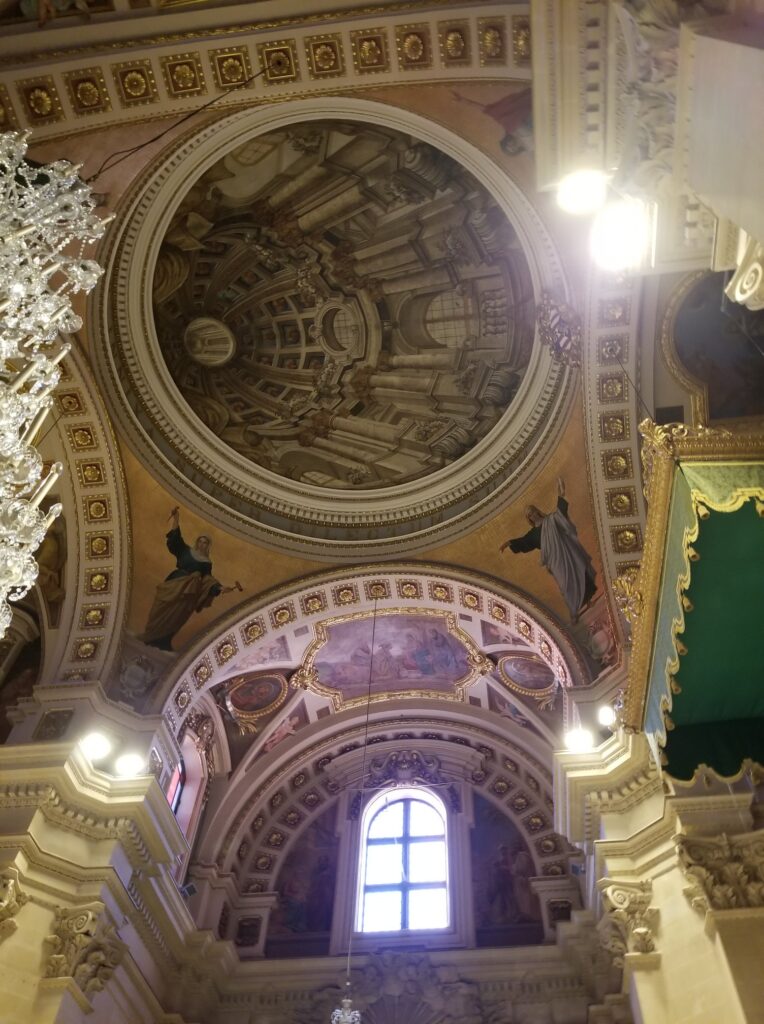
The most significant part is the dome, which is painted in the style of trompe-l’œil, whose goal is to create an optical illusion. When you look at the painting, it should give the impression that we are under the dome.
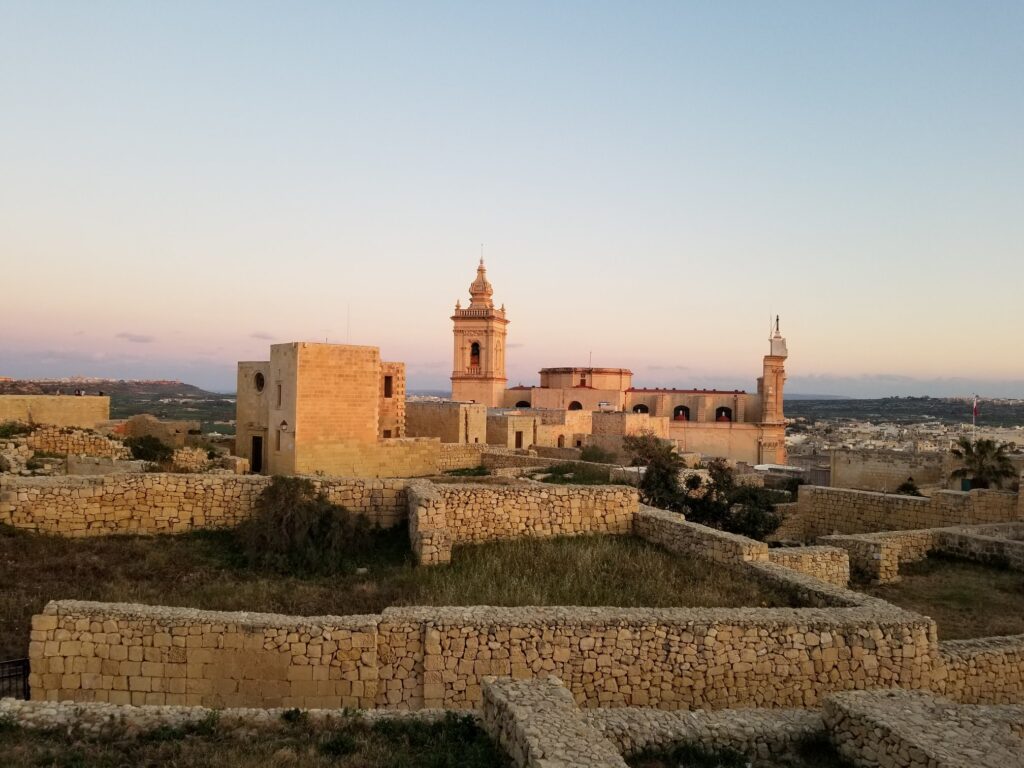
Taking a better look at the cathedral from aside, you can notice that the dome is not there as it was never actually built.
Check out other beautiful hiking wonders in Malta, like Malta by Foot and Malta Coastal Walk.
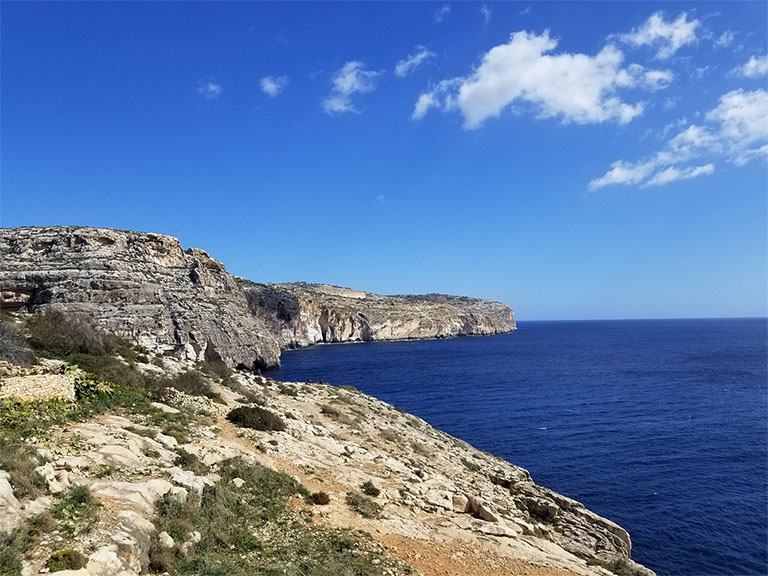
Beside capital La Valetta, Malta is famous for its picturesque villages and small towns that you can visit by foot. Here you can
Read More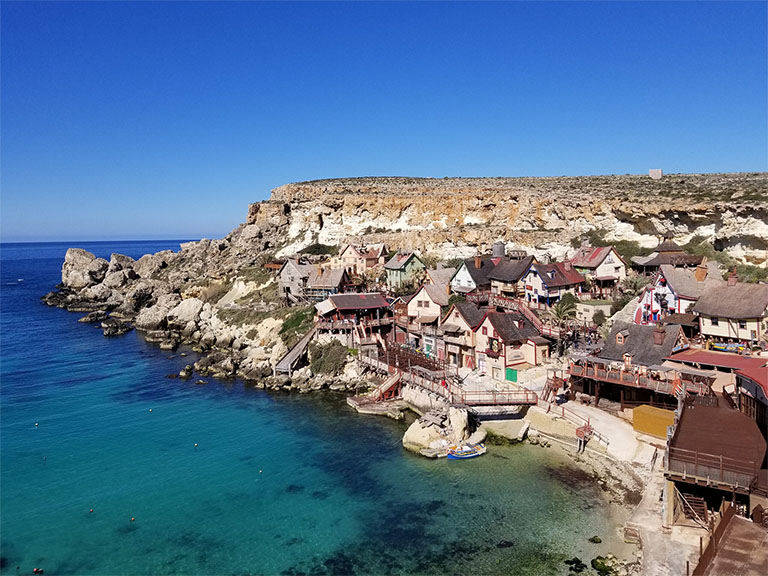
Malta is small island and it can be easily discovered walking by it coast. Beside beautiful nature, mediterranean coast, along t
Read More